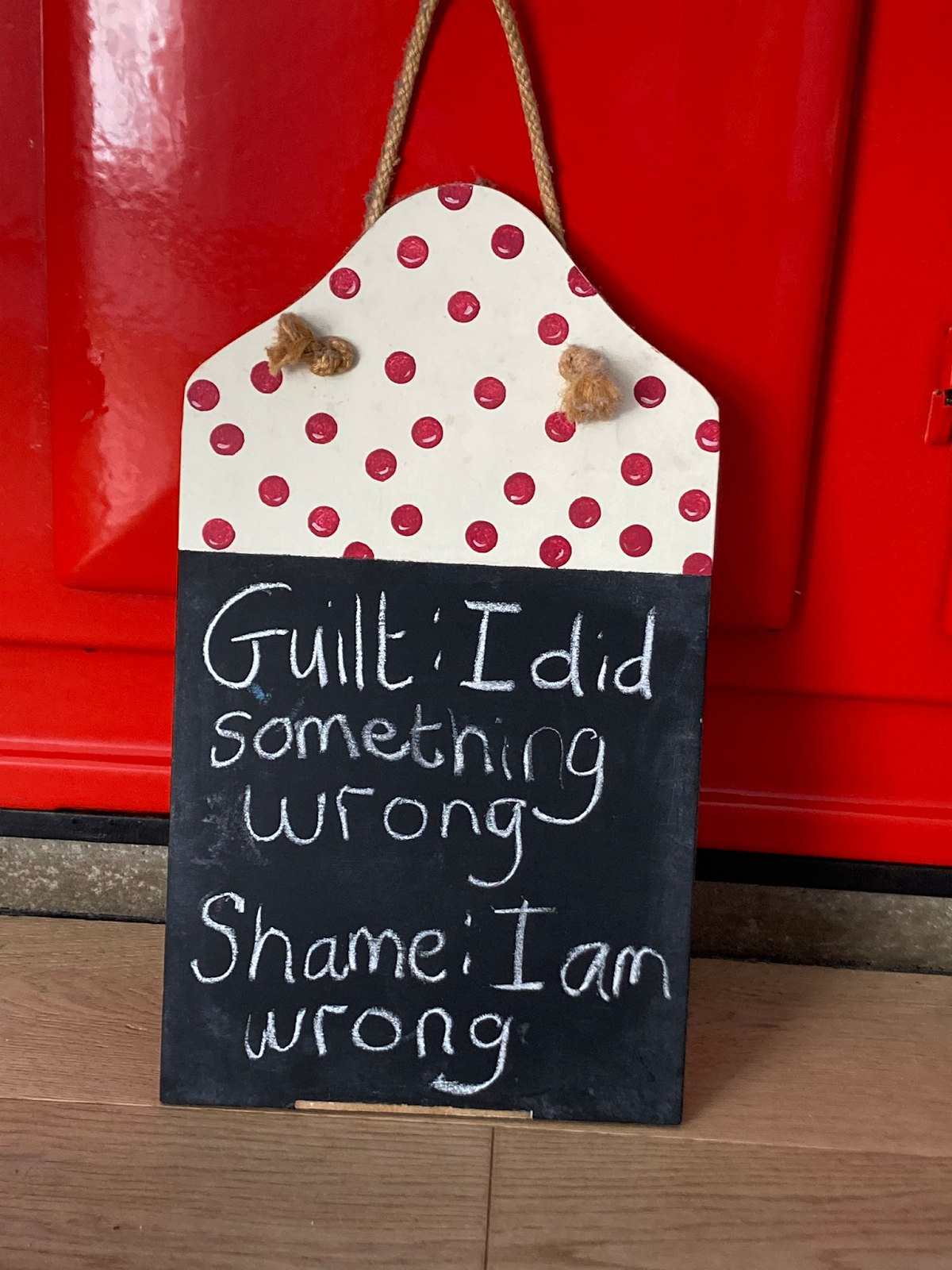Many of us use the terms guilt and shame interchangeably. We talk about feeling shameful and guilty
about something difficult that has happened.
But shame researchers, including
Brene Brown, believe that there is a profound difference between shame and
guilt.
Guilt “I did something wrong”
Shame “I am wrong”
In these two statements there is a subtle difference in
language and labelling. But this difference carries a monumental weight.
Guilt is our friend. Guilt
makes us feel uncomfortable about something we have done and this discomfort pushes
us to address the situation – going back to the shop with the item we forgot to
pay for, saying sorry for being mean, allowing someone else to choose this time. Feeling bad when we do something wrong might
not feel great but it is important. Otherwise,
where would we find the motivation and drive to do better next time or repair
the situation this time.
Shame is not our friend.
We have all felt it, that horrible sick feeling you get in your tummy,
that sense of unworthiness. It might be
about how we look; it might be about how clever we are; it might be about
saying the wrong thing to the wrong person. Brene Brown defines shame as “an intensely painful
feeling or experience of believing that we are flawed and therefore unworthy of
love and belonging.” When we feel shame,
we believe we are bad and sometimes we believe that there is nothing we can do
about it.
Within the criminal justice system there is now a recognition
that offenders who believe you can be a good person who has done a bad thing
are much less likely to reoffend. And
this makes sense. When we hold a core
belief of “I am good person who sometimes makes bad decisions” our ability to
consider change is present. On the other
hand, if we hold a core belief of “I am a bad person who does bad things” it is
almost impossible to contemplate change. Shame is never helpful or productive.
So how does all of this relate to parenting?
Let us consider this question.
“Are you raising your child in a pro shame or a pro guilt
environment?”
Parenting is gorgeous and fun and fulfilling and ….
hard. Most of us come into parenting
with an idea of what it will be like, of what we will be like and what our kids
will be like. Sometimes the experience
can feel very different. It is very easy
to feel shame over something our child has done, maybe they were mean to
someone at school, maybe they cheated in their final exam … when this happens, we
often transfer the feelings of shame we are experiencing onto our kids. Imagine this scenario, the swimming lesson
has finished and all the kids have piled in together and are busy getting
dressed. One child does not want to get
out of the shower and they want help to get dressed. Their parent watches as their child is the
only child who is not getting dressed. In that moment the parent says “why
can’t you dress yourself like everybody else, what is wrong with you.” This is a shame-based response. It locates all the difficulty in the child
and essentially gives the child the message that there is something wrong with
them.
This scenario is definitely familiar to me, I have been in this
place with my own children and I am sure I will be again. We are human and we are going to get it wrong
some of the time. When we parent with
shame it is incredibly important that we repair the rupture and support our child
to move away from the shame. In this
instance this might look something like “I’m sorry I spoke you like that, you
are a good kid who was finding it hard to make a good choice in that moment.” If, on
the other hand, we use shame as a core parenting strategy, our children,
through repeated exposure to shame, will internalise a sense of self that is
unworthy of love and belonging. And not only this but the long-term effects of
shame-based parenting include higher risks of depression, higher risk of dropping
out of school, and engagement in much more risky behaviours.
Take home…
Avoid using shame as a parenting tool. It is something that may work in the moment
to change their behaviour but the cost is vast and has the capacity to impact on
every area of our children’s lives going forward. If you are able, talk to your child about the
difference between shame and guilt.
Shame tells us that we are bad, guilt tells us that we did something bad. And the next time your teenager says out much
later than she is allowed she is not a bad teenager; she is a good teenager who
made a bad decision. Separating our
child from the choices they make is pro guilt parenting and this is the
parenting that communicates “You are a good kid who did something that was unacceptable”

Comments
Post a Comment